Monkeys Starting with H

Hairy Saki
The hairy saki (Pithecia hirsuta) is a species of saki monkey, a New World primate species. The species was identified by Johann Baptist von Spix in 1823 but later merged with the Mönk saki (P. monachus). Then, a 2014 study revived it as a separate species due to differences in fur coloration.
Read more
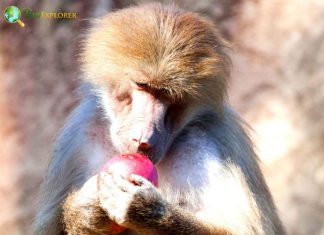
Hamadryas Baboon
The Hamadryas baboon (Papio hamadryas) is a baboon species in the Old World monkey family. The Hamadryas baboon was a sacred animal to the ancient Egyptians. It appeared in various roles in ancient Egyptian religion, hence its alternative common name, "sacred baboon".
Read more
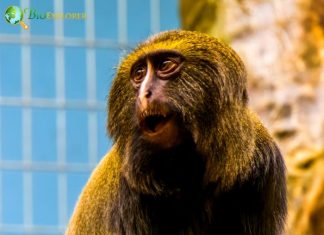
Hamlyn’s Monkey
The Hamlyn's monkey (Cercopithecus hamlyni), also called the owl-faced monkey, is an Old World monkey inhabiting the Congo's bamboo and primary rain forests. Hamlyn's monkeys have unique feet and hands in elongated phalanges.
Read more

Hatinh Langur
The Hatinh langur (Trachypithecus hatinhensis) is a critically endangered Old World monkey found in the limestone forests of Vietnam, particularly in Quảng Bình province. Contrary to their common name, the Hatinh langur is not known from the province of Hà Tĩnh.
Read more
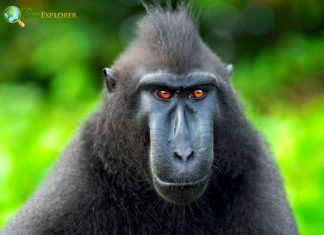
Heck’s Macaque
The Heck's Macaque (Macaca hecki) is a macaque native to Sulawesi, Indonesia. This Old-World monkey is diurnal. Due to their frugivorous diet, Heck's macaques will likely act as seed dispersers throughout their habitat.
Read more
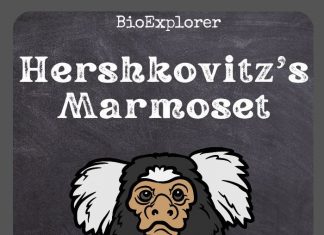
Hershkovitz’s Marmoset
The Hershkovitz marmoset (Mico intermedia), also called the Aripuanã marmoset, is endemic to the Amazon rainforest of south-central Brazil. The common name references Philip Hershkovitz, an American zoologist.
Read more

Highland Mangabey
The kipunji (Rungwecebus kipunji), also called the highland mangabey, is an Old World monkey inhabiting the upland forests of Tanzania. Kipunji is active during the day and mostly confine their activity to trees and rarely reach the ground.
Read more

Hoffmann’s Titi
Hoffmann's Titi (Plecturocebus hoffmannsi) is a New World primate native to Brazil. It was described as Callicebus hoffmannsi in 1908. These primates have small to medium-sized bodies. Hoffmann's titis are known to live in small, pair-bonded, and territorial groups and are considered monogamous by most biologists.
Read more
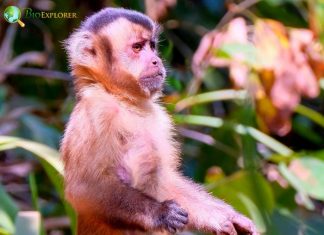
Hooded Capuchin
The Azaras capuchin or hooded capuchin (Sapajus cay) is a robust capuchin species. It is found in northern Argentina, southeastern Bolivia, eastern Paraguay, and Brazil. Its habitat consists of humid, subtropical, semi-deciduous, gallery forests and forests in the Pantanales.
Read more

Hose’s Langur
The Hose's langur (Presbytis hosei) is a primate species in the Cercopithecidae family native to the island of Borneo, which includes Brunei, Kalimantan (Indonesia), and eastern Malaysia. The species was first identified in 1985 in Sangkulirang Peninsula and Kutai National Park in East Kalimantan, Indonesia.
Read more
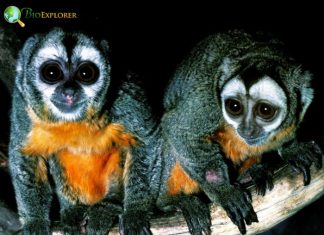
Humboldt’s Night Monkey
The three-striped night monkey (Aotus trivirgatus), also known as the northern owl monkey, Humboldt's Night Monkey, or northern night monkey, is one of several currently recognized species of owl monkeys.
Read more
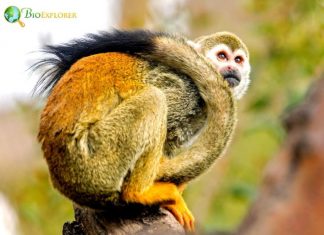
Humboldt’s Squirrel Monkey
Humboldt's squirrel monkey (Saimiri cassiquiarensis) is a species of squirrel monkey found in South America's tropical rainforests, except for the coastal forests of southeastern Brazil.
Read more
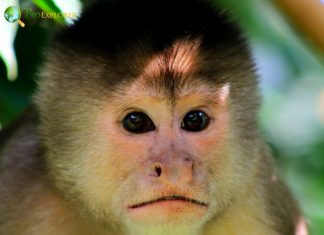
Humboldt’s White Capuchin
Humboldt's white capuchins, also known as white-fronted capuchins, are a species of New-World monkeys and one of the smallest capuchin groups. Humboldt’s squirrel monkeys are usually led by a dominant male and female.
Read more
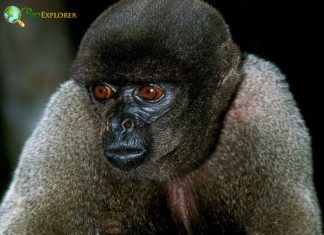
Humboldt’s Woolly Monkey
Humboldt's woolly monkey, common woolly monkey, or brown woolly monkey (Lagothrix lagothricha) is a woolly monkey endemic to South America. Humboldt's woolly monkeys can show subtle mood swings and intentions with various facial expressions.
Read more
Suggested Reading: All Primates
